When it comes to preparing baby formula, one of the key ingredients is water. While tap water may seem like an easy option, it can contain harmful contaminants and minerals that can be dangerous for a baby’s delicate digestive system.
That’s where distilled water comes in. Distilled water is purified through a process that removes impurities and minerals, making it a safer option for baby formula. But with so many brands of distilled water on the market, how do you know which one to choose?
In this blog, we’ve compiled a list of the top picks for distilled water for baby formula to help you make an informed decision and keep your baby healthy and happy.
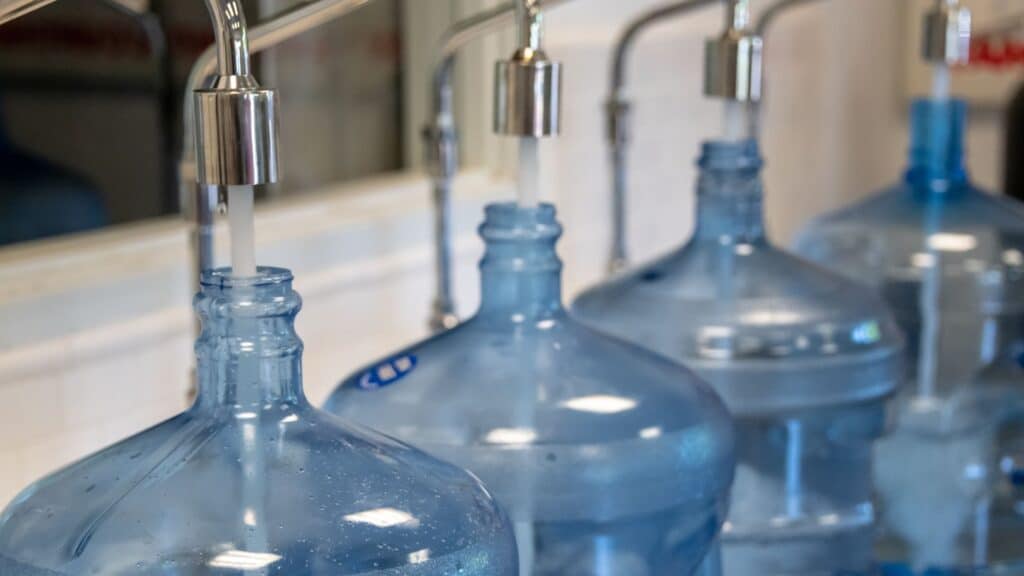
What to Look for in Distilled Water for Baby Formula
When choosing distilled water for baby formula, there are several things to consider ensuring that the drinking water is safe and appropriate for the baby’s needs:
Purity
When you are purchasing distilled water, look for a label that says your water has been purified through distillation. This tells you it has gone through a process in which impurities are removed and pure, clean water is left behind.
Bottled distilled water is a recommended option by the Environmental Protection Agency (EPA) for preparing the best baby formula. The distillation process removes impurities, making it a reliable and safe choice for babies. When selecting bottled distilled water for formula preparation, ensure it meets EPA standards.
Fluoride Content
When preparing baby formula, it is important to consider the fluoride content of the water used. While most tap water contains fluoride, excessive exposure to fluoride can cause dental fluorosis, which is the appearance of faint white lines or spots on a baby’s teeth.
The American Academy of Pediatrics recommends using low fluoride bottled water or fluoridated water that has been tested and deemed safe by the Environmental Protection Agency (EPA) for infant formula. In some cases, fluoride supplements may be necessary, but it is best to consult with your baby’s pediatrician to determine if additional fluoride is needed based on the fluoride levels in your local water system.
pH level
Distilled water is best for all stages of a baby’s life. Its chemical makeup is similar to breast milk and the minerals it contains are easily absorbed by your baby’s digestive tract. Water with a neutral pH of 7.0 helps keep baby’s digestion running smoothly, which can prevent gas, constipation, and other stomach issues.
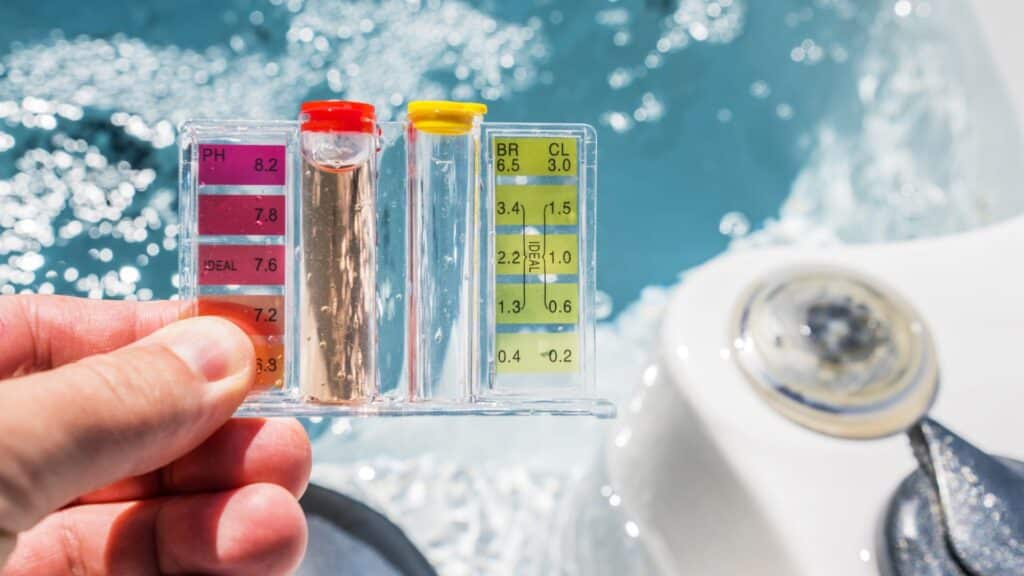
13 Top Picks for Distilled Water Brands for Baby Formula
1. ABC Baby Water
ABC Baby Water is a brand that offers safe and healthy purified and distilled water for various uses, including powdered formula preparation. The product is made from 100% spring water, with no sugar or artificial ingredients, making it ideal for babies with allergies or sensitive stomachs. The brand offers different packaging options, all made with recycled materials, and features baby-friendly designs. ABC Baby Water is tested and certified for quality and safety, made and bottled in the USA, and can be found at major grocery stores nationwide or online at Amazon.com.
2. Parent’s Choice Water
Parent’s Choice has been a trusted name when it comes to baby formula, and their distilled water is no exception. Made specifically for infants, this water contains all the minerals and nutrients that babies need. It’s completely safe to use for making baby formula and is also BPA-free for anyone who has concerns about that.
3. Poland Spring Water
Poland Spring is one of the most popular brands in the United States. This brand is known for its quality, purity, and taste. It is a very affordable product with a wide range of products available to suit your needs. The Poland Spring baby formula has an ABBR/HACCP Certification and NSF Certification as well as being BPA-, PVC, phthalate-free, and made in the USA.
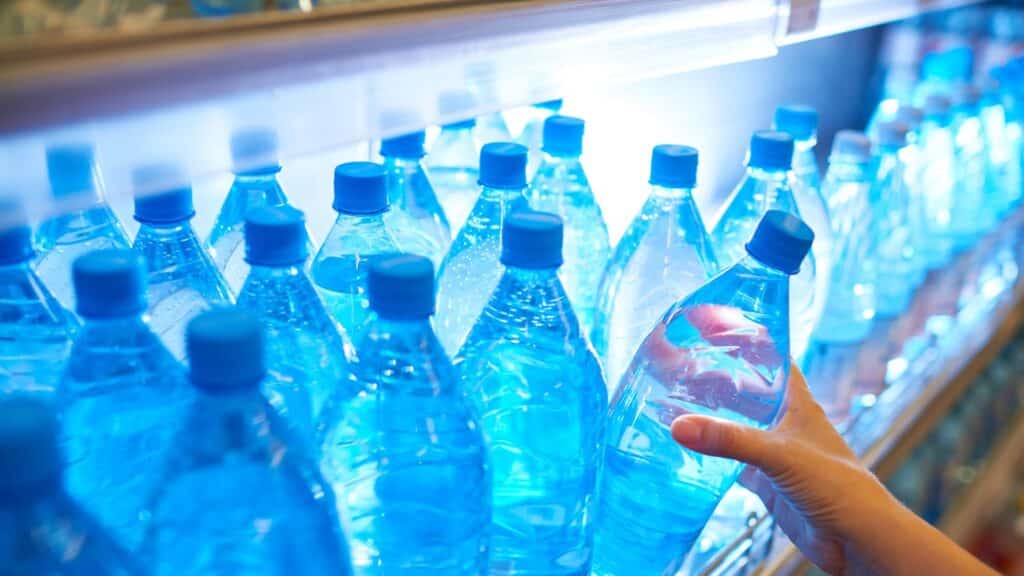
4. Zephyrhills Water
Zephyrhills is a reliable bottled water that has been sold in the US for over 90 years. It comes from an underground aquifer located in Pasco County, Florida and is one of the purest and freshest spring waters available. Zephyrhills brand water has won numerous taste awards, highlighting its excellent quality. Health benefits include improved digestion due to higher absorption, regulation of blood sugar levels and improved hydration – especially important for babies during teething.
5. Snugell Water
Snugell Water is specifically designed for infants, with a unique blend of minerals that help to offer the best water possible. This bottled water is hyper spring water, which has high levels of natural minerals. A USDA Organic certification means it is pure and safely made without any additives or preservatives.
6. Glacéau Smartwater
Smartwater is a great option for one-and-done moms who are looking for an affordable way to stay hydrated in the new and exciting journey of motherhood. This top pick for distilled water for formula contains zero calories, zero carbohydrates, and no sugars, it’s just water with the added benefit of electrolytes.
7. Aquapap
Aquapap is an infant formula brand created by a team of medical specialists. This brand is made with the highest quality ingredients like DHA, Vitamins and Calcium which makes it your best option for a ready-to-use liquid concentrate that contains nutrients needed by infants. It also has less sugar and zero preservatives, colors or flavors.
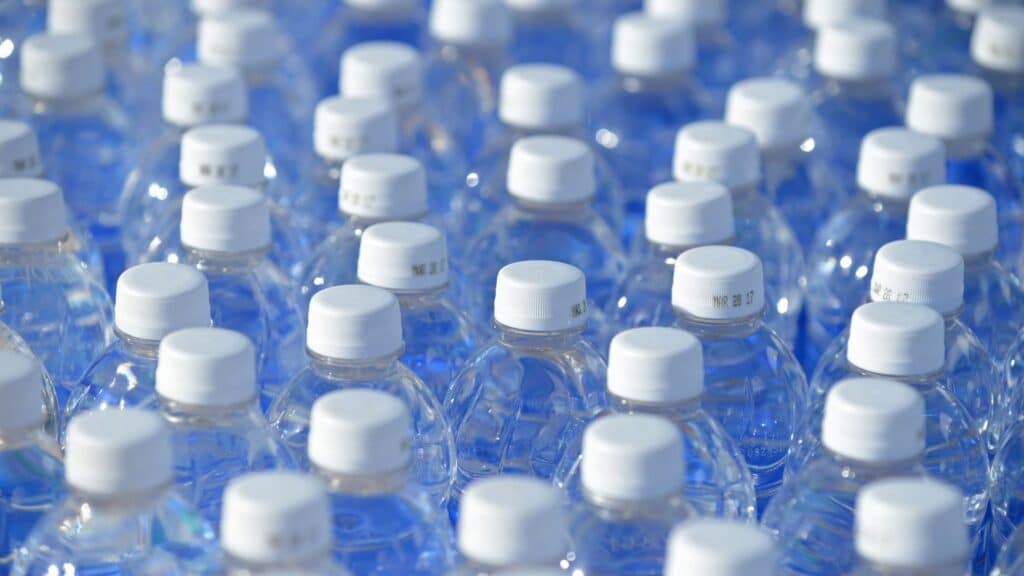
8. Nursery Water
Nursery Water is a premium distilled water and flavor enhancer that is perfect for homemade baby formula. It is ideal to use in the preparation of homemade baby formulas and ready-prepared sterile solutions as it has a USP grade water purity. Nursery Water can also be used to flavor whole milk, soups, sauces and drinks, as well as adding natural flavors to foods.
9. Gerber Pure Water
Gerber Pure Water is a purified water brand that is made specifically to be safe and healthy for you and your family. Gerber nurtures the development of growing bodies with nutritive formulas that are specially formulated to meet the unique needs of babies. This selection lets you choose the amount of fluorine added to each serving, up to 0.25mg/L. The requirements by local and state regulations vary depending on location so be sure to check with your doctor before using this purified water on your baby if you are unsure about the level of fluoride in your water supply.
10. Crystal Geyser Alpine Spring Water
Crystal Geyser Alpine Spring Water is packaged in a plastic bottle that contains 12.7 ounces of water. The packaging does not show the source of the water, but the company does say that the water is sourced from “underground springs.” The fluoride level of this water is 0 ppm and pH is measured at 6.3 (which falls in the mid to high-side category).
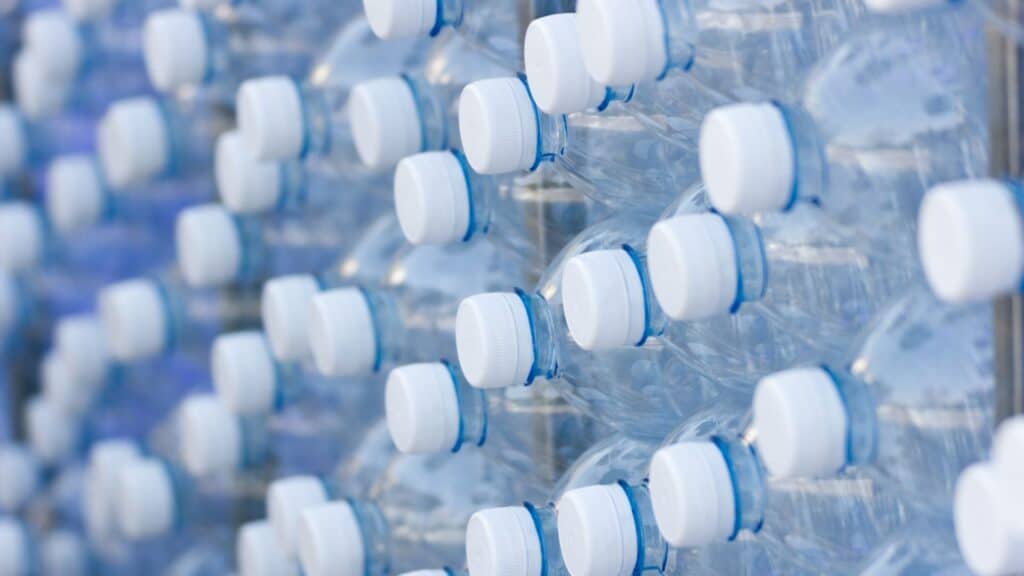
11. Arrowhead Distilled Water
Arrowhead Distilled Water is a popular brand of distilled water. It comes in several sizes and can be purchased individually or in multi-packs. This product can be used for making formula, stock, soups and much more. Arrowhead Distilled Water has a virtually unlimited shelf life because it has been purified to its purest form. It is one of the most popular distilled water brands in America today.
12. Publix Distilled Water
Publix Distilled Water is a popular brand with customers and consumers alike, who appreciate the quality and affordability of the product. This brand comes with a water bottle to reduce transport costs, or you can order them in bulk. For added convenience, they also offer a service where they deliver distilled water right to your doorstep.
13. Bay Bay Water
Bay Bay Water is a great choice for parents looking for a natural and affordable way to make baby formula. The product’s packaging makes it easy to store in the pantry or fridge with your other baby food. The Bay Bay Water plant is an FDA-approved and globally certified ISO quality facility, ensuring that you receive a safe product free from contaminants. It also has a pH of 7+, making it gentle on babies’ digestive systems.
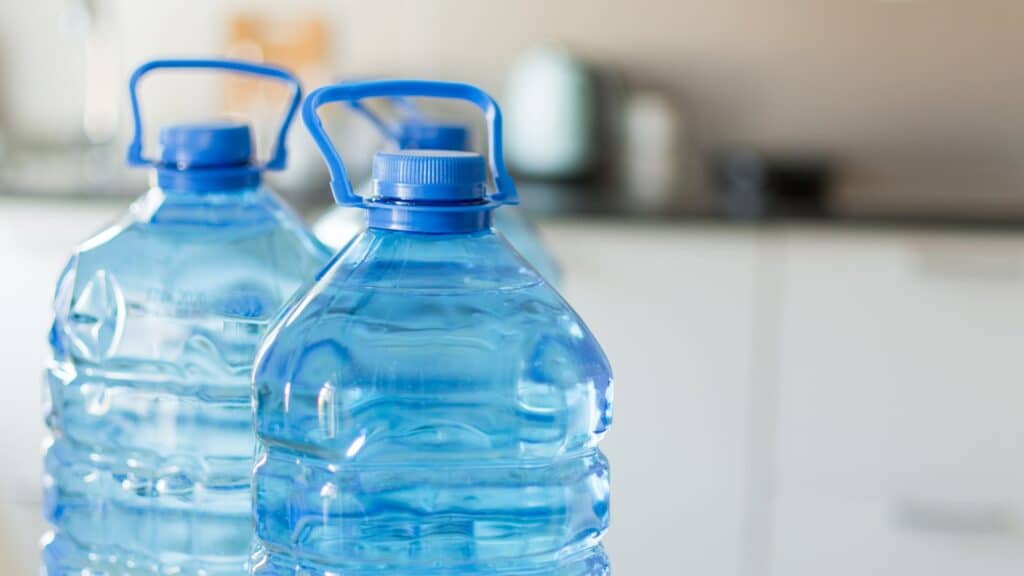
Other Considerations for Using Distilled Water for Baby Formula
When it comes to preparing infant formula, using safe and uncontaminated water is essential for your baby’s health. While purified or distilled water is the recommended option, it may not be the most cost-effective. In such cases, parents may consider other safe water options such as boiled water or filtered drinking water.
However, regardless of the water source, proper storage and handling are crucial to prevent contamination. Purified or distilled water should be stored in a clean, airtight container in a cool and dry place. Before mixing baby formula, ensure the container and utensils are clean and free of any potential contaminants.
It’s important to remember that the water used for mixing baby formula should only be used for that purpose and not for human consumption. By taking these necessary precautions, parents can ensure that their baby’s formula is prepared safely and hygienically
Here are the other water options for preparing baby formula:
Boiled Tap Water:
Boiling tap water is a common method used by parents to prepare infant formula, especially when distilled or purified water is not readily available. Boiling water can kill bacteria and other pathogens that may be present in city water or other drinking water sources, reducing the risk of bacterial contamination in the formula.
However, boiling water does not remove minerals and other impurities that may be present, such as fluoride. Using too much fluoride in infant formula can lead to a condition called fluorosis, which can cause white or brown spots on the teeth and potentially affect bone development.
Overall, if you choose to use boiled tap water to prepare formula, it is important to boil water for at least one minute and then allow it to cool to room temperature before mixing with the formula. Using hot water can potentially damage the nutrients in the formula.
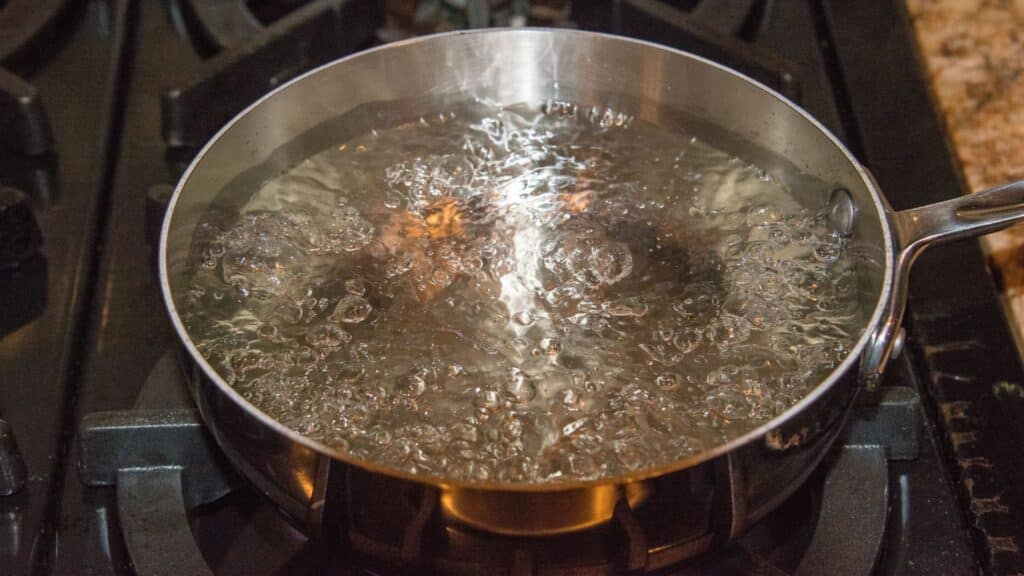
Filtered Water:
Using filtered water to prepare baby formula can be a good option for parents who are concerned about water quality or who do not have access to distilled or purified water. Water filters can remove impurities from tap water, such as dissolved salts, lead exposure, and extra minerals, which can be harmful to your baby’s health.
There are different types of water filters available, including reverse osmosis, water softeners, and faucet filters. However, not all filters are created equal, and it’s important to choose a water filter that is designed to remove impurities that could pose a health risk for your baby.
The American Academy of Pediatrics recommends using filtered tap water or bottled water labeled for infants when preparing formula powder. If you have well water, it is recommended to get it tested for potential contaminants.
It is also important to note that water filters should be changed regularly to ensure their effectiveness in removing impurities. When using filtered water for baby formula, it’s still important to follow proper disease control procedures, such as using a clean container and utensils, and discarding any unused formula after a few hours.
Bottled Water:
Bottled water can be a convenient option for parents who want to avoid using tap water to mix powdered formula or for those who do not have access to safe drinking water. However, it is important to choose bottled water that is labeled safe for infant consumption and meets the FDA’s standards.
When selecting bottled water, parents should look for water that is low in fluoride (less than 0.7 milligrams per liter) to avoid the risk of fluorosis, which can cause tooth decay and other dental problems. Additionally, parents should ensure that the water is free from harmful contaminants and is properly labeled for infant consumption.
It is also important to note that using bottled water can be expensive and may not be a sustainable option for formula feeding. Parents should consider their water systems and explore other safe and cost-effective options, such as filtered tap water or distilled water, before relying on bottled water to prepare formulas.
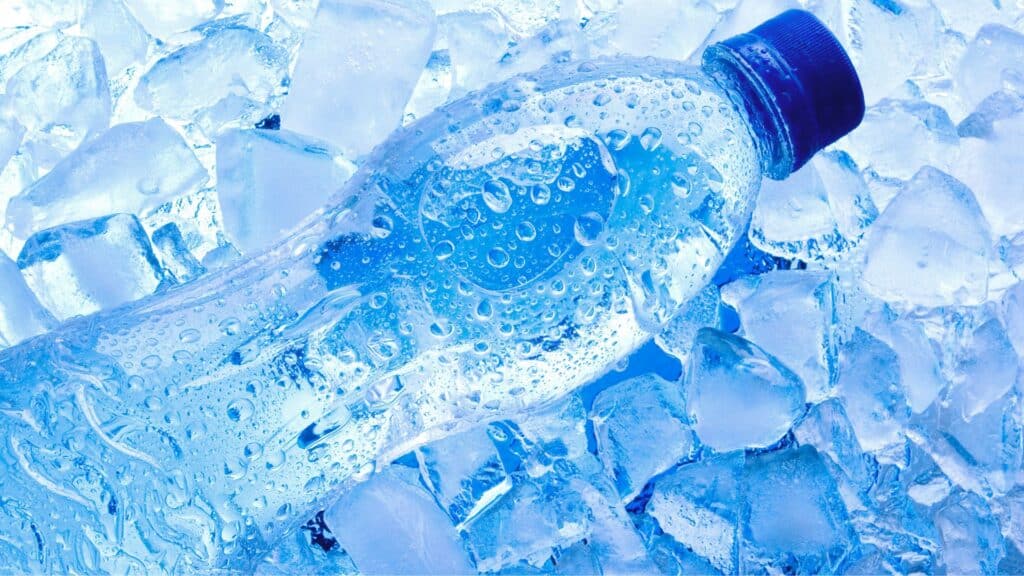
Criteria for Choosing the Best Packaged Drinking Water for Babies
Now that we’ve discussed the best types of baby water for preparing infant formula, it’s equally important to choose the right kind of water for your little one’s health and development. Let’s delve deeper into the criteria for selecting the best-packaged drinking water for babies, ensuring that you can make an informed decision when purchasing water for your baby’s needs.
Source of water
The source of water plays a crucial role in determining its quality and suitability for babies. Spring water, purified water, and distilled water each have distinct characteristics and come from different sources. Ensure that the water you choose comes from a reputable and protected source, free from contamination and environmental pollutants.
Purification process
Different brands of packaged drinking water undergo various purification processes, such as reverse osmosis, distillation, or UV treatment. When selecting water for making infant formula, opt for brands that use thorough purification methods to remove impurities, bacteria, and excessive minerals. Remember that boiling water is essential for formula preparation, regardless of the water source, to eliminate any potential contaminants.

Mineral content
The mineral content in packaged drinking water can significantly impact your baby’s body. Since babies have delicate systems, it’s essential to choose water with a balanced mineral content. Be cautious of soft water, which may contain high levels of sodium, and hard water, which may have excessive minerals. Fluoridated water is another aspect to consider, as additional fluoride can be detrimental to your baby’s dental health. Consult your pediatrician for guidance on fluoride supplements if necessary.
Packaging and storage
Packaged drinking water typically comes in plastic bottles or jugs, which can impact the water’s quality if not stored correctly. Ensure that the bottles are made from food-grade, BPA-free materials and store them in a cool, dark place away from direct sunlight or heat sources. Boiled water should be stored in clean, sterilized containers and used within a short period to maintain its safety for formula preparation.
Certification and safety standards
Lastly, always check the certification and safety standards of the packaged drinking water you choose for your baby. Reputable brands adhere to strict quality control measures and comply with regulations set by the FDA or other relevant authorities. Look for water that has been tested and certified to ensure that it meets the highest safety standards for your baby’s consumption.
The Safety Of Bottled Water For Babies
As we previously discussed the different types of water for babies, including tap water, purified water, and distilled water, it’s essential to delve deeper into the safety of bottled water for babies. In this column, we will discuss the precautions that parents should take when using bottled water for babies, whether it’s for drinking or preparing infant formula.
Bottled water, a convenient and widely available option, comes in various forms, such as spring water, purified water, and distilled water. When choosing bottled water for your baby, it’s crucial to consider its source, mineral content, and fluoride levels.
While most bottled water is considered safe for babies to drink, it’s important to ensure that the brand you choose meets specific safety standards. Baby bottled water, also known as nursery water, is specially designed for infants, with low levels of fluoride and other impurities. When preparing infant formula or offering drinking water to your baby, opting for nursery water can be a wise choice.
For parents who prefer using purified bottled water for their babies, it’s vital to check the purification process employed by the brand. Look for water that has undergone a thorough purification process, such as reverse osmosis or distillation, to ensure that it’s free from harmful contaminants.

Spring water, another popular choice for bottled water, is sourced from natural springs and typically has a balanced mineral content. However, it’s essential to be cautious when using spring water for babies, as the mineral and fluoride levels may vary depending on the source. Always opt for low-fluoride spring water when choosing this type of bottled water for your baby.
One concern when using bottled water for babies is the potential for the presence of microplastics or other contaminants leaching from the plastic bottle. To minimize this risk, store bottled water in a cool, dark place, away from direct sunlight or heat sources. Additionally, avoid using plastic bottles that show signs of wear, such as cracks or cloudiness, as they may release harmful chemicals into the water.
When offering drinking water to your baby, it’s best to consult with your pediatrician to determine the appropriate age and amount. In general, babies under six months old should not drink bottled water, as their primary source of hydration should come from breast milk or infant formula. As your baby grows and starts consuming solid foods, your pediatrician can provide guidance on when and how much water your baby can drink.
5 Easy Tips On Storing Bottled Water
If you’ve ever opened a water bottle only to find that it’s gone wrong, then you know how frustrating this situation can be. You want to save money and resources, but you also want to avoid drinking something that might make your baby sick.
The good news is that there are several things you can do to help keep your bottled water fresh for as long as possible:
1. Make sure that the bottle of water you use for formula feeding is sealed tightly after opening. This will prevent bacteria from entering the bottle and growing inside. You don’t need a bottle sterilizer, but do sterilize bottles and nipples by boiling them for 5 minutes before the first use.
2. Keep your bottled water in a cool place away from direct sunlight, as this could cause bacteria growth too.
3. Don’t store it next to other types of food or drink, as this may cause cross-contamination.
4. If your bottled water comes with an expiration date, ensure you use it within that period.
5. If you make your formula, check the instructions for what kind of water to use—it may differ from what you’d use for drinking.
Visit the Centers for Disease Control (CDC) website for more tips about washing your baby’s bottles and other feeding supplies.
Conclusion
In conclusion, choosing the right distilled water for your baby’s formula is an important decision that requires careful consideration. Factors such as purity, fluoride content, and pH level should be taken into account, as well as shelf life, storage, cost, accessibility, and environmental impact.
By following these guidelines, parents can make an informed decision and select a safe and sustainable distilled water brand for their baby.
Remember to consult with a healthcare provider before using any brand of distilled water for your baby’s formula to ensure it is safe and appropriate for your baby’s individual needs.
If you have any questions, please feel free to leave a comment below. We’ll get back to you as soon as possible.



